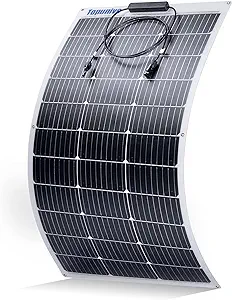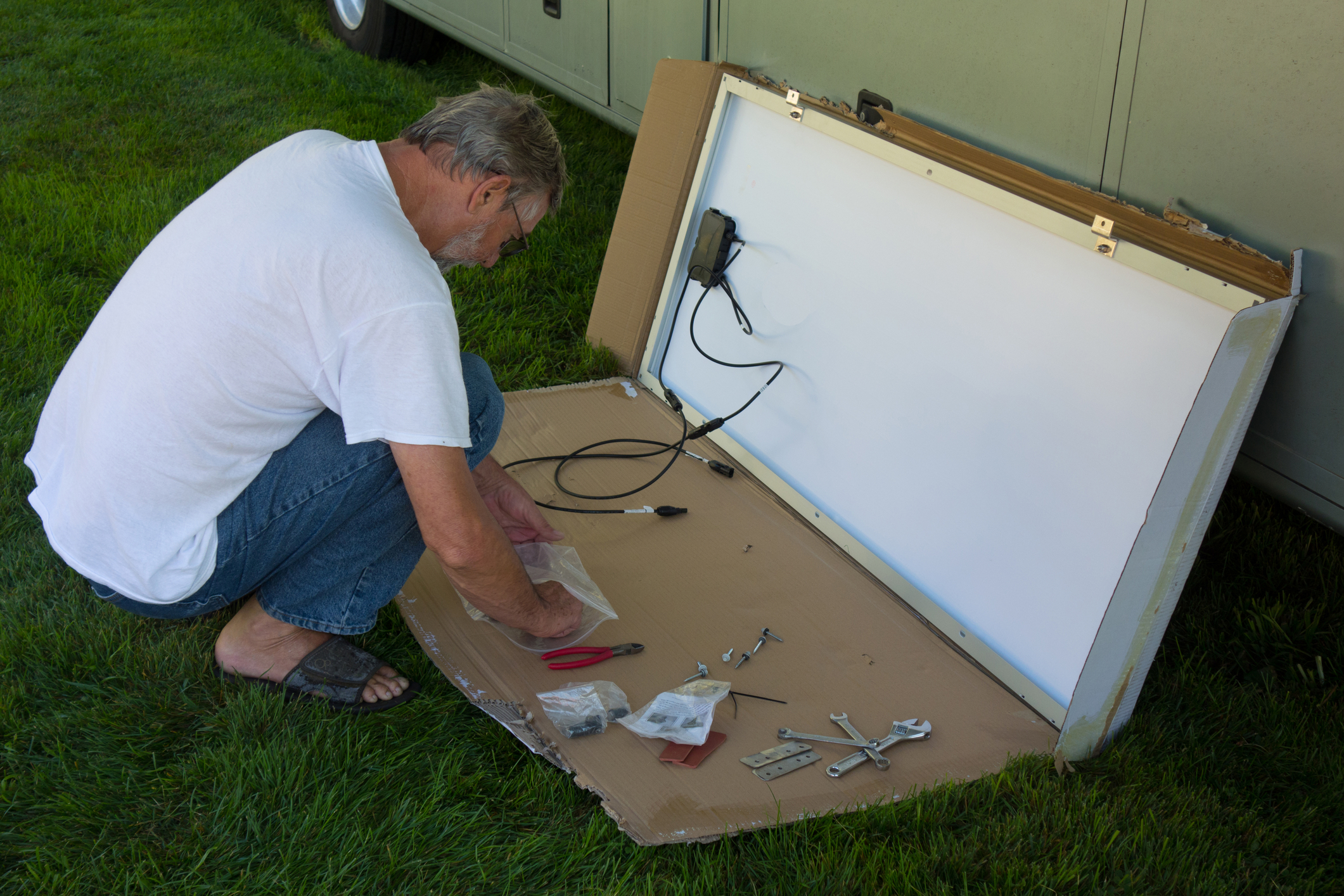Regardless of what type of RV solar panel you purchase—the majority of what’s on the market today is made from monocrystalline solar cells that are the most efficient source of solar energy—you still need to figure out whether you want a rigid, hard panel that is commonly put on top of RVs or a thinner flexible panel. Here are the advantages and disadvantages of each.
Advantages and disadvantages of rigid RV solar panels
Most RV solar system set-ups will consist of thick, hard, and often heavy monocrystalline solar panels. Whether permanently mounted on top of your rig, plugged into the solar-ready plug on the side of your camper, or attached directly to your RV battery bank with cables they offer many advantages over flexible panels. These advantages include:
- They are more durable and long lasting — as opposed to thin, flexible panels rigid RV solar panels have an aluminum frame with glass covering that provides protection from harsh elements such as hail, snow, wind, etc. which increases their lifespan. Got too close to a hanging tree branch when parking? Most likely your solar panel survived intact.
- They can withstand greater temperatures — the rigid construction with thermally-conductive material is designed to withstand high and low temperatures. The ideal temperature range is between 55 and 95° F. Temps outside of that range may reduce efficiency, but will not damage the panels.
- They are less prone to cracking — since the solar cells are encased in protective material they are less prone to cracking.
- They are often more energy efficient — not 100% true across the board—there are high-efficiency monocrystalline flexible solar panels on the market—but in general you are going to get more bang for your buck with a rigid panel i.e. they will provide more solar energy with the same amount of sun exposure.
The main downsides to rigid RV solar panels is that they are heavy, more costly on average, and more costly and time-consuming to install as well.
Related post: Can You Charge an RV Battery While Driving?
Advantages and disadvantages of flexible RV solar panels
Flexible solar panels are typically 200 micrometers or so thick and offer two primary advantages:

- They are lightweight — a thin, flexible 100 watt solar panel typically weighs around four pounds. A 100 watt rigid solar panel weighs around 16 pounds. That’s a significant difference that can add up quickly. The lighter weight also means they are much easier to carry and set-up as a solar suitcase.
- They can be mounted on curved surfaces — flexible solar panels can bend (to what degree depends on the panel you choose, shop around) and be mounted to a curved surface like the roof of a teardrop trailer.
A downside of flexible RV solar panels, even though they can cost less, is that they are often less efficient—10-17% efficiency compared to 16-23%. Why? The thin crystalline film has less material to react with sunlight. They are also more easily damaged i.e. the ability to bend means that the solar cells are less protected and can crack which also lowers efficiency.

